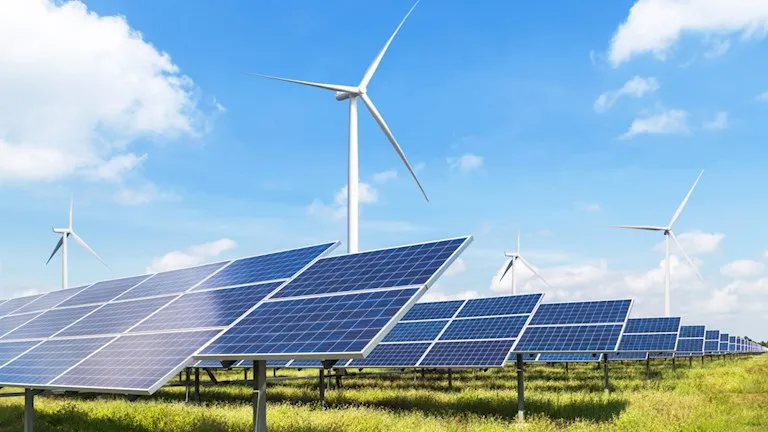I’ll be honest—nothing frustrates me more than sitting in the dark during a sudden blackout. I remember one evening when I was preparing an important online presentation, and boom—the lights went out! No internet, no laptop charge, and definitely no way to continue my work. That was the moment I started looking for renewable energy solutions for frequent power outages.
Over the years, I’ve tested different methods, from solar panels to backup batteries, and I can confidently say that renewable energy is a game-changer. In this blog, I want to share what I’ve learned, what works best, and how you can protect your home or business from power failures—without depending only on the grid.
Why Frequent Power Outages Are Becoming More Common
Before I dive into solutions, let’s talk about the problem.
- Power grids are getting old and can’t always handle high demand.
- Natural disasters like storms, heatwaves, and floods cause blackouts.
- In rural areas, load shedding is common.
- Electricity bills keep rising, and backup diesel generators are costly.
That’s why sustainable energy alternatives are not just “nice to have”—they are becoming necessary.
Read also: What are the key challenges facing green technology
Renewable Energy Solutions for Frequent Power Outages
When I first explored this topic, I realized there isn’t just one answer. Depending on your budget, location, and energy needs, there are several renewable energy solutions for frequent power outages that really work. Let me break them down.
Solar Power Systems: My First Step Toward Energy Freedom
Solar panels were the first investment I made.
- How it works: Solar panels capture sunlight and convert it into electricity.
- Best for: Homes, schools, offices, and even small businesses.
- Why I love it: Once installed, solar is low-maintenance and can power appliances during blackouts.
Pro Tip: Adding solar batteries (like Tesla Powerwall or Luminous in India) helps store excess energy for nighttime use.
Expert Opinion: Solar energy is the most reliable renewable option for households facing frequent outages. With the right battery setup, you can enjoy uninterrupted power for years. – Dr. Ananya Rao, Renewable Energy Expert
Wind Energy: Great for Open Areas
A friend of mine who lives in a windy region installed a small wind turbine. He doesn’t even notice when the grid goes down.
- How it works: Wind turbines capture wind energy and convert it into electricity.
- Best for: Farms, coastal areas, or places with steady wind.
- Why it works: It provides continuous power and works well with solar in a hybrid system.
Biomass Generators: A Hidden Gem
I once visited a farm where they used biomass generators. They turned agricultural waste into energy.
- How it works: Organic waste is burned or converted to produce electricity.
- Best for: Rural areas with farming waste.
- Why I admire it: It’s eco-friendly, reduces waste, and ensures power backup.
Hybrid Energy Systems: My Favorite Combination
Honestly, I find hybrid systems the most reliable. When the sun doesn’t shine, the wind might blow.
- Solar + Wind + Battery = 24/7 reliable energy.
- Hybrid systems are flexible and reduce dependency on one source.
Microgrids and Community Power Sharing
When I visited a village project in South India, I saw a solar microgrid powering the entire community.
- How it works: A local mini-grid powered by renewable sources supplies electricity to households.
- Best for: Communities, schools, or housing complexes.
- Why it matters: Shared cost, reliable supply, and independence from the main grid.
Key Benefits of Using Renewable Energy for Power Outages
- Reliable Backup: No more candles during blackouts.
- Cost Savings: Lower bills in the long run.
- Eco-Friendly: Reduces pollution and carbon footprint.
- Energy Independence: No dependence on costly diesel generators.
- Future-Proof: As fossil fuels decline, renewable is the way forward.
Read also: How Green Technology Is Helping Fight Climate Change
My Personal Experience with Renewable Energy
I installed solar panels with a backup battery three years ago. Today, even when the grid fails, my fridge, fans, and Wi-Fi run smoothly. Sure, the initial cost was a bit high, but the long-term savings are incredible. Plus, I love knowing that I’m using clean energy.
Expert Insights You Should Know
- Investing in renewable energy now is cheaper than buying diesel every month. – Prof. Vikram Singh, Energy Consultant
- Frequent power outages should push households to explore solar + battery solutions. It’s sustainable and dependable. – Sarah Miller, Green Energy Advisor
Final Thoughts
If frequent power outages are ruining your daily life, don’t just wait for the power company to fix things. Take control. From my personal journey, I can say that renewable energy solutions for frequent power outages are worth every penny.
FAQs
Q1: Are solar panels enough to handle long power cuts?
Yes, but only if paired with batteries. Without storage, solar won’t work at night.
Q2: What’s the cheapest renewable option?
Solar home kits and small wind turbines are affordable and practical.
Q3: Can renewable energy fully replace the grid?
For small homes, yes. For large businesses, hybrid setups work best.
Q4: How long do batteries last?
Most solar batteries last 8–12 years with good care.
Q5: Do renewable energy systems work in rainy or cloudy areas?
Yes. Hybrid systems (solar + wind) are designed to cover such situations.

